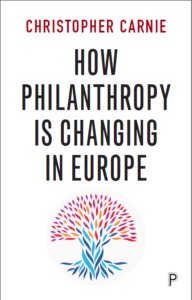To all our colleagues in prospect research and fundraising, we understand what a worrying and challenging time this is right now – not just for our organisations but for us personally. Here at Factary, just like everywhere else, we have had to come to terms with major changes to the way we live and work whilst we focus on ensuring we and those close to us remain safe and well. Whilst people’s attention has rightly been focused on issues closer to home, we also want our organisations to be able to continue to achieve their objectives, but Covid-19 has already and will continue to have a negative impact on organisations’ ability to deliver their services, with the impact on fundraising a specific concern for many[1]. There are so many questions that we don’t know the answer to yet; what will be the long-term impact on income levels for charities and non-profits? How can you engage with donors and supporters with social restrictions in place? Will donors have the capacity to support you at the same level in the future? Will their priorities be the same? How should we respond to the situation in the short term and how can we plan for the long term?
We do not pretend to know the answers to these questions, and in many ways, it is still too early to know for certain. That there will be long-term implications for the economy, and therefore people’s household wealth, is not in doubt[2], but we do not know how severe this impact will be or how donors will respond over time. For example, one article we have seen stated that the world’s richest have already lost $200bn[3] whilst another other stated that their wealth has grown by $308bn[4]. At the same time, we are seeing some phenomenal responses from philanthropists around the world, both at the international and local level[5], however this is involving a re-alignment of funding priorities for some philanthropists[6].
Luckily there are some brilliant, clever, helpful people out there who are offering advice, insight and support to the sector during this difficult time. These are some of the people who may be able to help you find the help and answers you might be looking for right now and as we start to move forward with our recovery:
- Institute of Fundraising – Lots of great blogs providing information and advice for various aspects of fundraising during this time.
- Association of Charitable Foundations – An interesting survey on foundations’ responses to Covid-19 plus other advice and resources.
- UK Fundraising – A wealth of useful articles and blogs from Howard Lake and others containing advice for fundraisers. Particularly useful is this one with five actions fundraising teams should be considering taking now.
- Alliance Magazine – articles giving a global perspective on the philanthropy response to Covid-19.
- Helen Brown Group – The ever-amazing Helen Brown and her blogs on things from a US perspective.
- NFP Synergy – research and resources on charities and Covid-19.
This list is far from exhaustive, but we’ve found some really useful thoughts and advice on some of these pages and we hope that they may help you think about how to respond to Covid-19 both in the short term and in the longer term.
Right now, the main priority is to ensure that we, our friends, family and colleagues are safe, and we do all we can to support our incredible NHS and key workers. But when we are able to start looking to the future and working out the best way forward, we will be here for you. Whether that is just for a friendly chat or some advice, or to talk about ways we can support you to build your prospect pool for the future, we will be here working with you.
Stay safe, and we look forward to talking to you and working with you in the near future.
The Factary Team
[1] https://www.civilsociety.co.uk/news/nine-in-ten-charities-will-struggle-to-meet-objectives-due-to-covid-19-poll-finds.html
[2] https://www.pwc.co.uk/services/economics-policy/insights/uk-economic-update-covid-19.html
[3] https://economictimes.indiatimes.com/news/company/corporate-trends/how-coronavirus-impacted-the-wealth-of-rich-people-around-the-world/coronavirus-is-taking-away-the-wealth-of-the-wealthy/slideshow/74667660.cms
[4] https://www.forbes.com/sites/jackkelly/2020/04/27/billionaires-are-getting-richer-during-the-covid-19-pandemic-while-most-americans-suffer/#44d667654804
[5] https://www.nptuk.org/philanthropic-resources/giving-perspectives/global-philanthropys-response-to-covid-19-and-how-to-get-involved/
[6] https://www.acf.org.uk/news/covid-19-results-of-acfs-survey-on-foundations-responses

